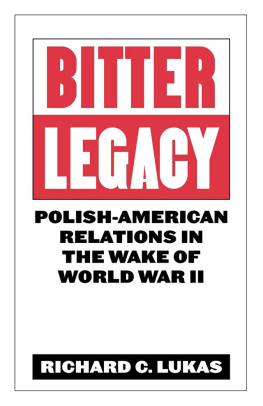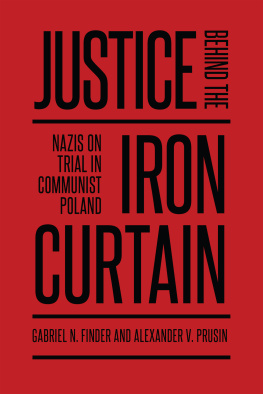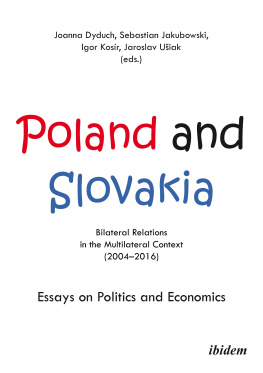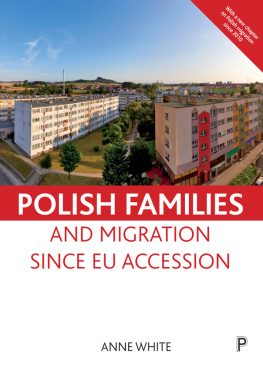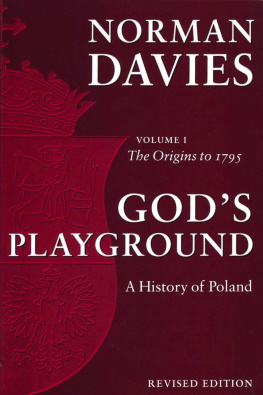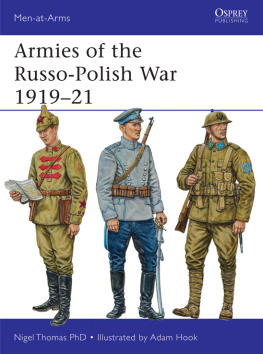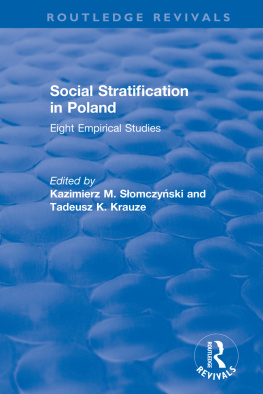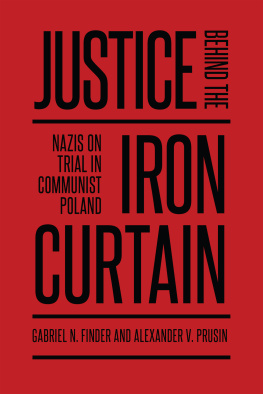Bitter Legacy
BITTER LEGACY
POLISH-AMERICAN
RELATIONS
IN THE WAKE OF
WORLD WAR II
Richard C. Lukas
Copyright 1982 by The University Press of Kentucky
Paperback edition 2009
The University Press of Kentucky
Scholarly publisher for the Commonwealth, serving Bellarmine University, Berea College, Centre College of Kentucky, Eastern Kentucky University, The Filson Historical Society, Georgetown College, Kentucky Historical Society, Kentucky State University, Morehead State University, Murray State University, Northern Kentucky University, Transylvania University, University of Kentucky, University of Louisville, and Western Kentucky University.
All rights reserved.
Editorial and Sales Offices: The University Press of Kentucky
663 South Limestone Street, Lexington, Kentucky 40508-4008
www.kentuckypress.com
Cataloging-in-Publication Data is available from the Library of Congress.
ISBN 978-0-8131-9273-4 (pbk: acid-free paper)
This book is printed on acid-free recycled paper meeting the requirements of the American National Standard for Permanence in Paper for Printed Library Materials.
Manufactured in the United States of America.
| Member of the Association of American University Presses |
Contents
To My Father, Franciszek
Preface
For a long time there has been a need for a detailed account of United States-Polish relations in the years immediately following World War II, the crucial period during which Poland became a Soviet satellite. This book not only deals with the political and economic relations between the United States and Poland but also explores the impact of these relations on such postwar issues as relief, repatriation, Polish American opinion, and most importantly the origins of the Cold War.
Many people have helped with this book, and it is a pleasure for me to thank them here for their assistance. To B.F. Jones, Richard Fraser, Wallace Prescott, and Arliss Roadenall at Tennessee Technological UniversityI am indebted for the reduction in my teaching load and for some of the funds that enabled me to travel to the depositories where most of the research material for this book is located.
I owe a special debt to Tim Callahan, Pat Eggleston, Betty Huehls, Andrew Sorokowski, and Steve Williams for helping me with some of the research that has gone into this study.
Daniel Buczek was especially kind in providing me with material from the files of the Rev. A.A. Skoniecki. James Bochan, Waclaw Jedrejewicz, B.B. Kopecki, Stefan Korbonski, Pelagia Lukaszewska, Wanda Rozmarek, and Paul Zaleski shared their knowledge and personal experiences with me, greatly enriching my understanding of important aspects of the subject.
I am indebted to the librarians and archivists of the many institutions I visited to gather material for this study. Without exception they were efficient and unfailingly kind to me.
Linda Ogletree, who acquired material through interlibrary loan services for me, was most helpful. My thanks to Lois Richardson, who typed the rough draft of the manuscript, and Linda McDearman, who did the final copy. I am grateful to Nolan Fowler for helping me read proof, and also to Harry Lane for drawing the map.
Without the financial aid of the Kosciuszko Foundation, the American Council of Learned Societies, and the Social Science Research Council, this book would not have been a reality. To be sure, the findings and conclusions presented here do not necessarily represent the view of these donors.
My gratitude to my wife, Marita, can not be adequately expressed in words.
I
The Road to Potsdam
Recent events in Poland have reawakened considerable American interest in that country. One of the questions often raised today is how did Poland become a communist state. This study, which focuses on Poland from the Potsdam Conference through the elections of 1947, is an attempt to fill a major gap in the historical literature by offering a detailed account of why United States policy was unable to reverse the process begun at the Yalta Conference that transformed Poland into a Soviet satellite.
American policy toward postwar Poland was based upon the unrealistic belief that the United States would be able to exert some political influence in an area that had been written off as a Soviet sphere of influence by the Roosevelt administration. Largely through economic diplomacy, the United States expected to maintain a presence in Poland and to insure that the Polish Peasant party of Stanislaw Mikolajczyk, the former premier of the Polish government-in-exile who took a seat in the provisional government in Warsaw, would have a place in the political life of Poland. On their part, Mikolajczyk and his supporters were just as unrealistic as the Americans in insisting upon free elections which the communists could not allow because an open expression of opinion by the Polish people would have expelled them from power. The failure of the communist-dominated block and Mikolajczyks party to reach a modus vivendi doomed the hopes and expectations of the American and Polish people and underscored the limitations of American policy in an area where the Soviets were dominant and were determined to exclude American influence.
The Polish question,which had dominated so many of the discussions of the leaders of the Big Three during the war, continued to occupy a major place at Potsdam, the last meeting of the leaders of the victorious anti-German coalition. Although Polands eastern frontier had already been decided and the Allied powers had supervised the establishment of a communist-dominated Polish provisional government of national unity, two major questions remained to be settled the implementation of the Yalta Conference pledge that the Warsaw regime conduct free and unfettered elections to establish a permanent government in Poland and the settlement of Polands boundary with Germany.
The long and tortuous road to Potsdam was not an easy one. After the ill-fated September campaign of 1939, the Polish government fled into exile and eventually found its permanent wartime home in London, from which it maintained contact with underground political and military authorities in Poland. The London Poles, as they were called, were recognized by the United States, by Great Britain, and after Hitler unleashed Operation Barbarossa in June 1941by the Soviet Union as the legal political representatives of the Polish state. Preoccupied with its own survival during the early months of the Russo-German conflict, the Kremlin could not afford to alienate its western Allies over issues which had not been satisfactorily resolved by the Polish-Soviet Treaty of July 1941. But as Soviet military fortunes improved, the Kremlin established a position of strength that enabled it to deal more independently, and even arbitrarily, with Polish authorities in resolving such questions as the supply and recruitment of a Polish army on Soviet soil, the relief and evacuation of Polish refugees, and most importantly the postwar boundary between the two nations.

